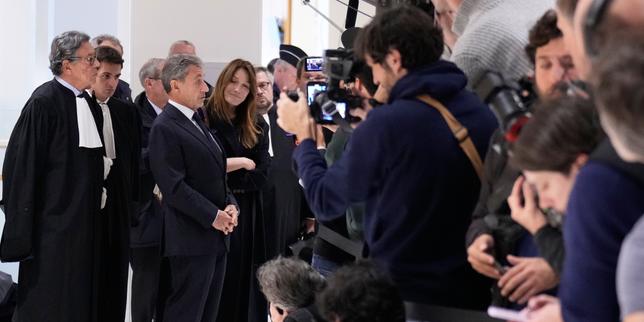Public and Political Backlash Following Sarkozy's Sentence
Following Nicolas Sarkozy's sentencing, public and political responses reveal deep concerns over judicial integrity in France.
- • Sarkozy sentenced to five years in prison for illegal campaign financing.
- • Critics raising doubts about the judicial system's integrity.
- • Misinformation and attempts to discredit the ruling are spreading.
- • The ruling marks a significant issue of political accountability in France.
Key details
In the wake of Nicolas Sarkozy's sentencing to five years in prison for illegal campaign financing linked to Libyan funds, significant public and political reactions have emerged, illustrating deep divisions over the integrity of the French judiciary. The Paris judicial court delivered its ruling on September 25, 2025, marking a historic precedent as it is the first time a former French president has received a prison sentence.
The judgment has sparked a heated debate within France, with critics voicing their distrust in the judicial system. Prominent figures including journalist Laurence Ferrari and political commentator Alain Duhamel have raised concerns about what they describe as a 'generalized suspicion of corruption' pervading the judiciary. Duhamel pointed to an emerging 'judicial crisis' in the nation, questioning the processes involved in judicial appointments and oversight. Henri Guaino, a former adviser to Sarkozy, went as far as to label the decision a 'judicial coup d'état', intensifying the narrative of judicial manipulation that has arisen in the aftermath of the ruling.
In addition to these critiques, there has been a surge of misinformation circulating regarding the sentence's legitimacy. Supporters of Sarkozy have attempted to frame the conviction as politically motivated, claiming a lack of evidence to support the ruling. According to reports, these narratives focus on discrediting the judicial decision and fueling conspiratorial thinking about the motivations behind the court's actions. The French legal community’s response to these accusations has been largely subdued, with very little defense mounted in public forums.
This unprecedented ruling against Sarkozy underscores broader concerns about political accountability in France, as many observers consider the implications of such a sentence on the political landscape and the judicial process itself. As the discussions continue, the ongoing scrutiny of the judiciary highlights the fragile state of public trust in France's legal institutions and the contentious nature of political discourse following this landmark case.
This article was translated and synthesized from French sources, providing English-speaking readers with local perspectives.
Source articles (2)
Source comparison
Court Type
lemonde.fr
"Nicolas Sarkozy was sentenced by the Paris judicial court."
liberation.fr
"Nicolas Sarkozy was sentenced by the Paris correctional court."
Latest news
Pau's Local Election Campaign Gathers Momentum Amid Broader Political and Economic Concerns
French Companies and Regions Accelerate Efforts in Nature-Related Economic Transition
France Heightens Military Readiness Amid Iran Conflict, Pledges Defense Support to Gulf States
Jean-Luc Mélenchon Faces Accusations of Antisemitism Over Joke on Raphaël Glucksmann's Name
Tensions and New Faces Mark the 2026 French Municipal Elections
France Bolsters Military Presence in Gulf Following Iranian Drone Attacks
The top news stories in France
Delivered straight to your inbox each morning.


